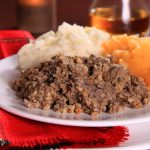
Orangemen’s Day
Orangemen’s Day is a holiday that’s also known as The Twelfth or the Glorious Twelfth and is observed annually on July 12th. This day is an Ulster Protestant holiday that celebrates the victory of William of Orange over King James II at the Battle of the Boyne in 1690. This began the period of Protestant Ascendancy in Ireland. The battle has been viewed as a symbolic struggle between Catholics and Protestants in Ireland, although a thoroughly modern analysis of the war shows that Protestants and Catholics fought on both sides. It’s also a holiday that’s been well known for its political aspects, but recently that’s been downplayed to try to make the holiday a more family-friendly day.
The History Of The Glorious Revolution
The Glorious Revolution refers to the deposition of King of England James II and VII, and the replacement by his daughter Mary II and her husband, William III of Orange—de facto ruler of the Dutch Republic. James became king in February 1685, despite being Catholic, with widespread support as some people feared that his exclusion would lead to a repeat of the Wars of the Three Kingdoms.
From 1685 through 1688, James ended up alienating his supporters by suspending the Scottish and English Parliaments and then by ruling by personal decree. There wasn’t a whole lot of concern about this because James was in his 50s and his second marriage was childless, so his Protestant daughter Mary was the presumed heir.
However, the birth of James Francis Edward in June of 1688, which displaced Mary as the presumptive heir, created the prospect of a Catholic dynasty. This event, and the prosecution of the Seven Bishops on June 15th, turned the dissent into a full-blown crisis. Their acquittal sparked anti-Catholic riots and destroyed King James’ political authority. This convinced a number of people from the ruling class to invite William to secure the English throne for his wife.
On November 5th, William landed at Brixham with 15,000 men. As he advanced towards London, support for James’ regime crumbled, and the fighting died down to a few small skirmishes. James went into exile on December 23, and by April of 1689, William and Mary were made joint monarchs of England and Ireland by Parliament. A holiday observing this occasion has been celebrated by people in Northern Ireland, the UK, and Newfoundland ever since.
Observing Orangemen’s Day
On this holiday, marches are held all over Northern Ireland. Some of the people who participate in these marches traditionally wear dark suits, bowler hats, white gloves, and orange sashes. However, this look isn’t as common as it once was. People also tend to fly the Union Jack and/or the Orange Order flags. Another common practice is for huge bonfires to be lit, some so large they can be seen for miles away. And because this holiday is a bank holiday in Northern Ireland, banks are closed in that region. However, banks and businesses do not close in the UK or Newfoundland.








